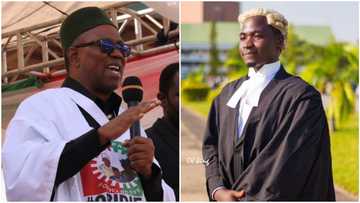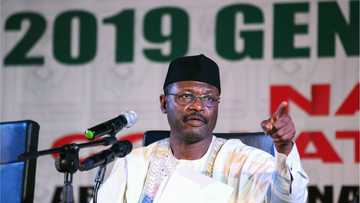2023 Polls: INEC Explains How Winner of Presidential, Legislative Elections Will Emerge
- With less than two weeks to the 2023 general elections, insights have been given into the factors that will decide the winner of the presidential poll
- The winner of the presidential poll is expected to have 25% of the votes cast in at least two-thirds of all the states, including the FCT
- However, if this threshold is lacking, the two candidates with the highest votes will head for a run-off election
The 2023 general election is getting closer than ever, and the stakes are high on who takes up the baton of leadership from President Muhammadu Buhari.
In the build-up to the general elections, the Independent National Electoral Commission (INEC) has continued to sensitise Nigerians and electorates on the electoral practices of the country.
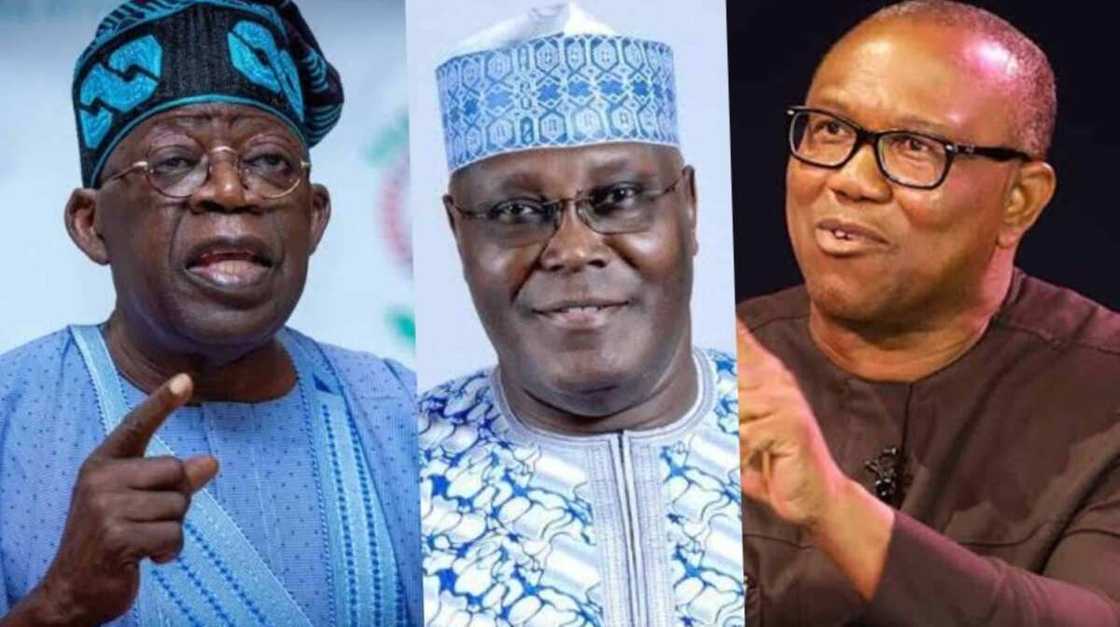
Source: Twitter
In this article Legit.ng has put together a summary of how the winner of the 2023 elections will be determined at the presidential and legislative polls.
According to Yiaga Africa's election advisory document My Election Buddy, made available to Legit.ng, the legal requirements for declaring a winner in the presidential and legislative polls differ. INEC can only announce a winner if specific legal requirements are fulfilled.
PAY ATTENTION: Follow us on Instagram - get the most important news directly in your favourite app!
For legislative elections, winners emerge through a Simple Majority. Any candidate with the highest number of votes is declared a winner.
Meanwhile, for the executive election, like the presidential election, the Constitution sets two primary criteria for determining a winner of a presidential election.
1. A presidential candidate must secure the highest number of votes cast at the election.
2. The candidate must secure at least 25% of votes cast in at least two-thirds of all the states of the federation and the federal capital territory.
It is important to note that one of the presidential candidates contesting in the 2023 election will only be declared the winner if the candidate secures the Simple Majority of votes cast on Saturday, February 25 and 25% of the votes in 24 out of the 36 states.
What happens when a candidate does not secure this threshold?
It is also important to note that INEC will take a crucial decision in a situation where any candidate does not meet the threshold.
The crucial decision referred to here is that INEC will conduct a second election, known as a "run-off", within 21 days from the day of the declaration of the result of the first election.
A run-off is a voting system used to elect a single winner. Of course, the ultimate goal in an election is for a winner to emerge.
For the presidential run-off election, not all 18 registered political parties sponsoring candidates will participate; only two will be on the ballot.
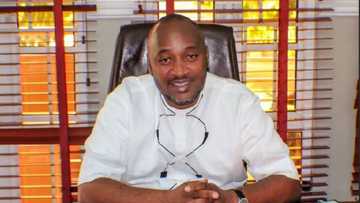
Read also
Tension hits Obi, Atiku's camp as top presidential candidate dumps ambition asks supporters to vote Tinubu
Who will be on the ballot in a run-off poll
1. The first will be the presidential candidate who secured the highest number of lawful votes.
2. The second will be the candidate with a majority of votes in the highest number of states.
3. Where there is more than one candidate with a majority of the votes in the highest number of states, the one with the highest total number of votes will be the second candidate for the election.
4. Victory in a run-off election is by simple majority.
2023 Elections: PVC verification, Voter Accreditation and 3 Other Key Things Voters Should Know About BVAS
Before the 2023 polls, electorates have been urged to equip themselves with the correct information before heading to the polling units.
INEC has, over the past few months, continued its sensitisation and awareness schemes in conjunction with civil society groups to keep voters up to date.
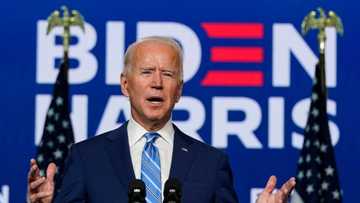
Read also
Barely 48 hours before election, US president Joe Biden sends powerful message to Nigerians, candidates
One of the various pieces of information a voter needs is how the Bimodal Voter Accreditation System (BVAS) functions.
2023 Elections: Nigerians Get Electoral Education on How To Make Informed Political Decisions
Meanwhile, efforts are ongoing to ensure that the 2023 general election in Nigeria has the best outcomes for the people.
Specifically, the advocacy group has commenced training and public enlightenment to make this possible.
According to them, public enlightenment will go a long way to help in the success of the general elections.
Source: Legit.ng


